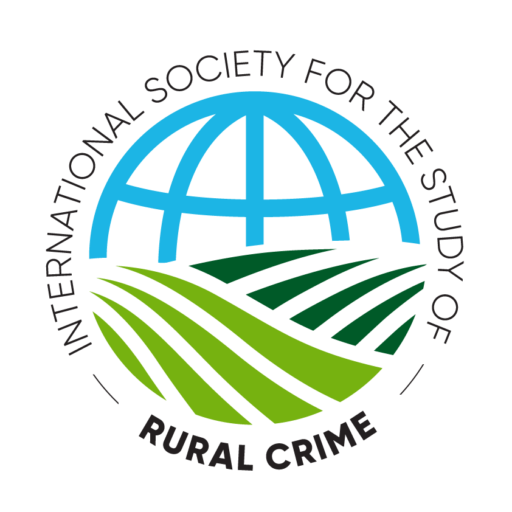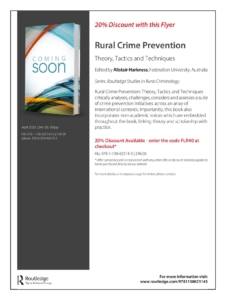New rural crime book series!
‘RESEARCH IN RURAL CRIME’ BOOK SERIES
 Myths about peaceful, crime-free areas beyond the cityscape persist, but in fact rural crime is multi-faceted, raising new policy predicaments about policing and security governance. With approximately 46 percent of the global population living in rural areas, a focus on rural crime in these diverse communities is critical.
Myths about peaceful, crime-free areas beyond the cityscape persist, but in fact rural crime is multi-faceted, raising new policy predicaments about policing and security governance. With approximately 46 percent of the global population living in rural areas, a focus on rural crime in these diverse communities is critical.
Filling a gap in the discipline, the ‘Research in Rural Crime’ series – published by Bristol University Press – provides an outlet for original, cutting-edge research in this emergent criminological subfield. Truly international in nature, it leads the way for new research and writing on a wide range of rural crime topics, rural transgressions, security and justice.
The series editors would welcome monograph-length titles that are jurisdictional specific or related to themes that transcend political and juridical boundaries, presenting outlooks on contemporary and pressing public policy issues. Contributors to this series present pioneering interdisciplinary and comparative rural criminological perspectives. Titles will be theoretically and conceptually driven, empirical or adopting mixed-methods approaches, and topics will focus on regional, rural and remote parts of the globe that are often overlooked in criminological works. Books in this series can be sole or joint authored, or edited collections, and will be between 60,000 and 80,000 words in length.
If you would like to submit a proposal or discuss ideas, then please contact the Series Editors:
Alistair Harkness alistair.harkness@federation.edu.au
Matt Bowden matt.bowden@TUDublin.ie
Further information can be accessed at https://bristoluniversitypress.co.uk/research-in-rural-crime

